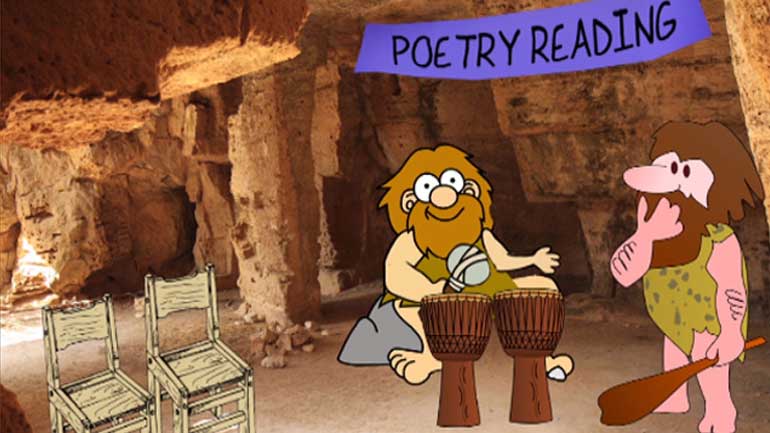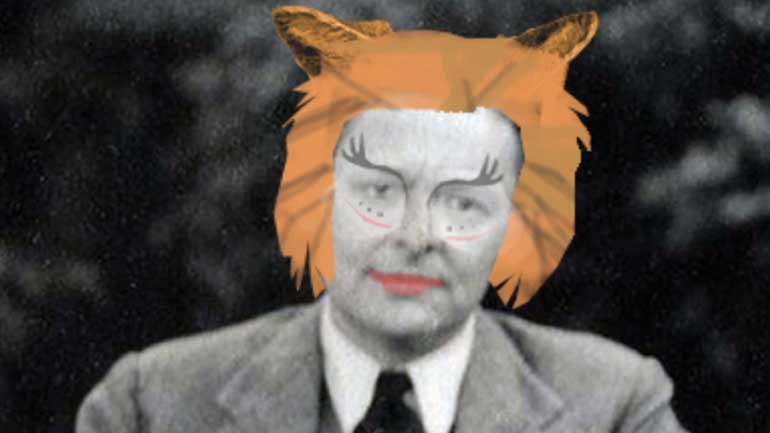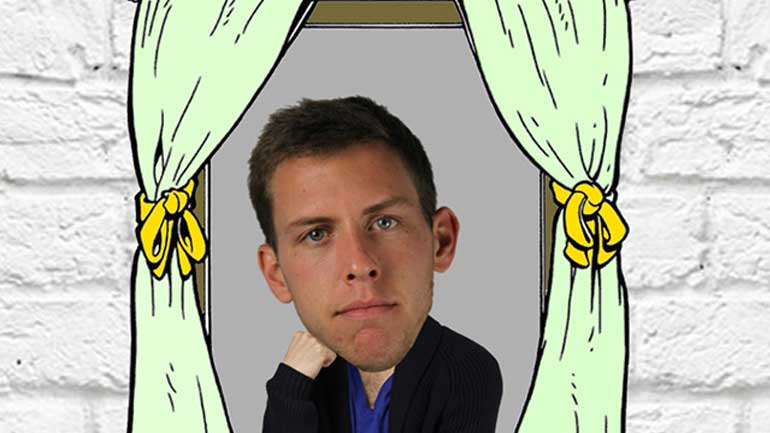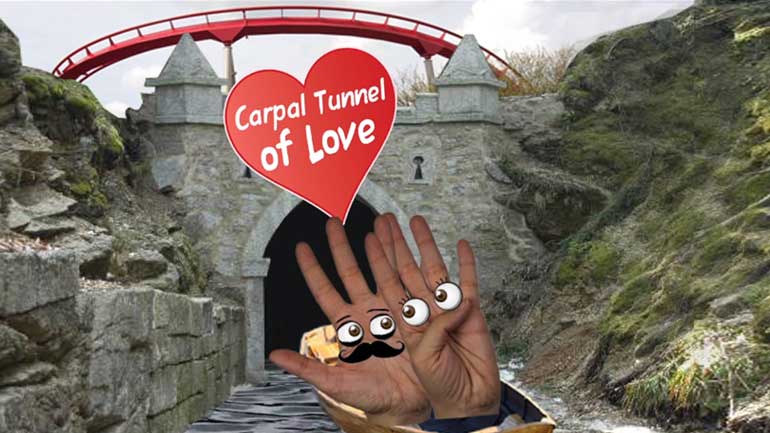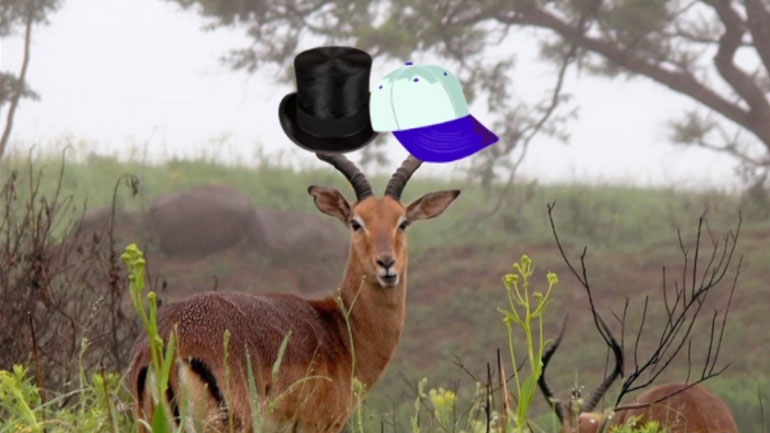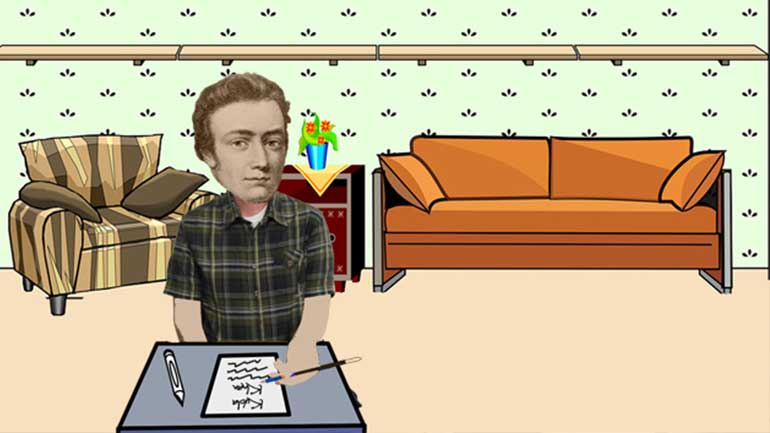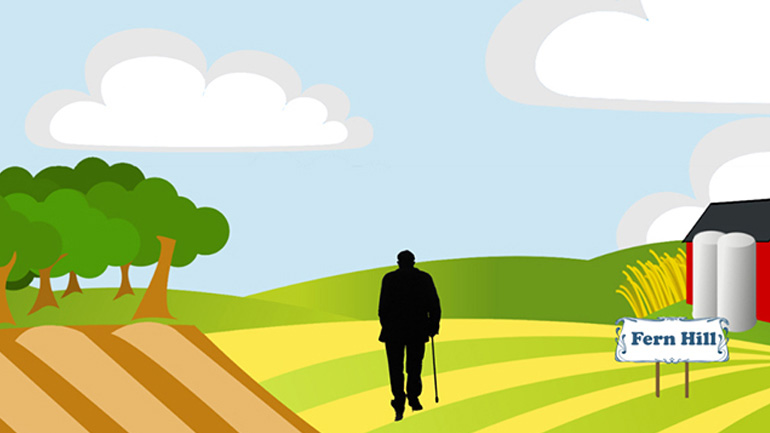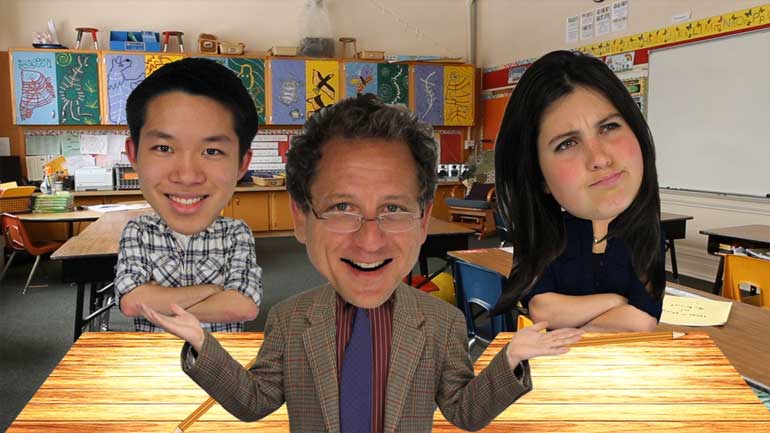ShmoopTube
Where Monty Python meets your 10th grade teacher.
Search Thousands of Shmoop Videos
Body and Soul 205 Views
Share It!
Description:
Ever been told, "I love you, mind, body, and soul?" Us neither. Thanks for all the false hope, John Donne.
Transcript
- 00:01
Body and Soul, a la Shmoop. Way back in the seventeenth century, when
- 00:10
John Donne<<Done>> was writing poems about love, people were fascinated by the soul.
- 00:17
No, no, not that kind of soul… that hadn't been invented yet. We’re talking about the
- 00:22
concept of the human soul.
- 00:25
Everyone agreed that people had souls, kind of like how everyone today agrees that Nutella
Full Transcript
- 00:29
is all kinds of awesome.
- 00:31
The only question was, where was the soul located? Was it part of the body? Was it the
- 00:38
same thing as the mind? How did it all work together?
- 00:40
Okay, that's four questions. You got us. As expressed in his poem “The Ecstasy”,
- 00:47
Donne thought that the soul and the body were distinct from each other, yet still connected
- 00:51
in important ways.
- 00:52
For one thing, Donne thought the soul was able to separate from the body and chat up
- 00:56
other souls it found interesting. Yeah, not creepy at all.
- 01:03
Donne also believed the soul could be purely philosophical about love without getting…
- 01:08
touchy-feely. But let's take a look at how souls and bodies
- 01:15
interacted on a day-to-day basis… you know, while out grocery shopping or doing the laundry
- 01:20
or stuck in traffic.
- 01:22
According to Donne, the secret to how a soul lived inside its body was… blood, because
- 01:28
sure, why not?
- 01:30
While this theory sounds completely cray-cray to modern ears, things were different back
- 01:36
in Donne's day. In the seventeenth century, scientists believed
- 01:40
that blood produced “spirits”, kind of like spiritual red blood cells, that were
- 01:45
half-soul and half-body.
- 01:46
These “spirits” set up communication between the soul and its body, allowing the body to
- 01:51
bring the soul both the 411 about the outside world via the senses...
- 01:56
...as well as to help the body feel emotional and spiritual urges.
- 02:02
Donne thought this was all just absolutely fabulous, and he wrote “The Ecstasy” as
- 02:07
a kind of celebration of everything the body and soul can do together.
- 02:11
And what was the coolest body-and-soul experience? Well… love, of course.
- 02:19
See, the body would walk the soul around, allowing it to meet up with potential love
- 02:25
interests.
- 02:26
Then, the soul would take over, filling the body with feelings of joy and companionship.
- 02:31
Remember those lovers on the bank in “The Ecstasy”? Kind of like that.
- 02:37
The poem's take-home message is that, while the body and the soul have distinct roles…
- 02:42
…they work together in the service of love, with the same goal.
- 02:45
Ultimately, then, there's not a big difference in what the body and the soul are doing, and
- 02:50
spiritual love equates with physical love.
- 02:52
Or, as Donne puts it in the final lines, “He shall see/ Small change, when we are to bodies
- 02:58
gone.”
- 02:59
And there you have it. Donne and dusted.
Related Videos
Books are meant to be enjoyed. Sure, authors have different motives for their works—some may want to start a revolution while others hope to deli...
Have you ever read a sestina in a cantina or a villanelle in your holding cell? The great thing is that... not every type of poetry needs to rhyme....

